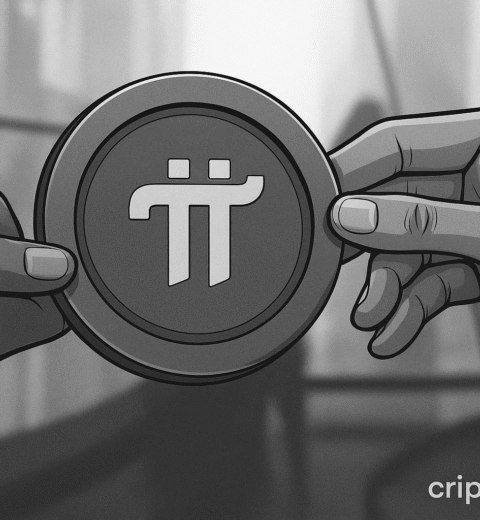Crypto once promised privacy and freedom — until the U.S. put the brakes on Tornado Cash. With sanctions dropping like a regulatory bomb, the rules just changed for every American crypto user. Want to protect your assets and stay legal in 2025? This guide has you covered.
We’ll break down everything — the reasons, the risks, the legal drama, and what you should do next — in a simple, informative way. Let’s dive into the world of Tornado Cash sanctions and how they reshape the crypto landscape.
What is Tornado Cash, Really?
Tornado Cash is a decentralized, non-custodial privacy solution on the Ethereum blockchain. It works like a “mixer” — allowing users to send Ethereum or ERC-20 tokens anonymously. By mixing your crypto with that of others, Tornado Cash breaks the on-chain link between sender and receiver.
Here’s How It Works:
| Step | What Happens |
|---|---|
| 1. Deposit | User sends funds to Tornado Cash smart contract |
| 2. Mixing | The contract pools the funds, mixing them with others |
| 3. Withdrawal | User withdraws funds to a new wallet, breaking the trace |
This method ensures that the origin of the crypto is concealed, much like how physical cash exchanges make tracking harder. The system uses cryptographic zero-knowledge proofs (zk-SNARKs), which confirm transactions occurred without revealing the sender or amount.
Think of it like cash: once it changes enough hands, you can’t tell where it came from. That’s why privacy advocates love it.
But regulators don’t — and that’s where the Tornado Cash sanctions came in.
The U.S. Government Strikes: Sanctions Announced
In August 2022, the U.S. Treasury’s Office of Foreign Assets Control (OFAC) officially blacklisted Tornado Cash. They cited its involvement in laundering over $7 billion in illicit crypto assets since 2019.
Key Points of the Tornado Cash Sanctions:
| Sanction | Impact on Users |
| SDN Listing | U.S. users are banned from interacting with Tornado Cash |
| No Hosting | Sites related to Tornado Cash were taken down |
| Arrests | Dutch police arrested a developer |
| Seizure Risk | U.S. authorities can seize assets linked to Tornado Cash |
U.S. Treasury Official Statement.
These Tornado Cash sanctions created panic, debate, and legal confusion in the crypto world — especially in the U.S.
What Do Tornado Cash Sanctions Mean for U.S. Citizens?
Let’s be clear: if you’re in the U.S., using Tornado Cash is now illegal. But the implications go deeper:
1. You May Lose Access to Your Crypto
If your funds were ever mixed with Tornado Cash, centralized exchanges like Coinbase or Binance.US may freeze them. Many exchanges employ blockchain analysis tools that automatically flag transactions linked to Tornado Cash contracts. Once flagged, accounts may be suspended or reported to authorities.
2. Developers Are Under Legal Threat
Writing open-source code is protected speech, right? Not anymore. The arrest of Tornado Cash developer Alexey Pertsev shows regulators now equate code deployment with enabling crime. Even publishing privacy-preserving smart contracts may bring legal risks under current interpretations.
3. Your Privacy Rights Are Shrinking
For many, Tornado Cash was a way to protect their financial privacy. Now, even using such tools could land you in legal hot water. This leads to a chilling effect where developers avoid building privacy tools, and users fear being penalized for protecting their data.
YouTube: Coin Bureau – Tornado Cash Explained.
The Legal Debate: Is Code a Crime?
This is the most controversial part of the Tornado Cash sanctions. Privacy advocates and legal scholars argue that writing or sharing code — even privacy-enhancing code — should not be criminalized.
Arguments in Favor of Tornado Cash:
- Tornado Cash is autonomous — developers can’t shut it down.
- The code is open-source and publicly available.
- Privacy is a fundamental right, even in finance.
- Publishing code is considered free speech in many democratic nations.
EFF Statement on Tornado Cash Sanctions.
Arguments from U.S. Authorities:
- Tornado Cash enabled massive laundering of stolen funds.
- It had no KYC/AML compliance.
- State actors (like North Korea’s Lazarus Group) abused it.
- Sanctioning a tool is different from silencing speech — it targets behavior.
@WatcherGuru – X Discussion on Sanctions (Dofollow)
This debate will likely shape the future of Web3 regulation in the U.S. and determine how decentralized technologies are treated under law.
Economic Fallout: Market Reactions
Following the Tornado Cash sanctions, crypto prices dipped, and privacy coins like Monero saw volatility. Developer interest also slowed, and projects related to privacy features experienced funding issues.
Market Impact:
| Metric | Pre-Sanctions | Post-Sanctions |
| Tornado TVL | $300M | <$100M |
| GitHub Contributions | High | Down 70% |
| Privacy Coin Use | Growing | Flat/Declining |
| Privacy App Downloads | Rising | Dropped by 60% |
Privacy tools are now under the microscope. Even MetaMask temporarily blocked Tornado-linked addresses.
Who Else Uses Mixers Like Tornado Cash?
Regulators argue that mixers like Tornado Cash are used mostly by criminals. But data shows a more complex reality:
Mixer Usage Breakdown (Estimates)
| User Type | Approx. Usage |
| Retail Investors | 40% |
| Whales (DeFi/NFT) | 20% |
| Hackers/Bad Actors | 30% |
| Unknown | 10% |
Everyday users seeking privacy — for salary, donations, or political reasons — make up the majority. Sanctions might be harming more legitimate users than malicious ones.
What Are the Legal Alternatives in 2025?
Post-sanctions, U.S.-based users are looking for legal, compliant alternatives. Here are some tools gaining popularity:
| Tool | Network | Privacy Tech | U.S. Friendly? |
| Aztec | Ethereum | zk-rollups | ✅ Yes |
| Secret Network | Cosmos | Encrypted contracts | ✅ Yes |
| Railgun | Ethereum | zk-SNARKs | ⚠️ Use Caution |
| zkMoney | Ethereum | zk-proof vault | ✅ Yes |
| Nightfall | Ethereum | Optimized zk privacy | ✅ Yes |
These tools emphasize compliance, transparency, and governance. Still, consult legal counsel before using.
Bonus: Compare Tornado Cash with Alternatives
| Feature | Tornado Cash | Aztec | Secret Network | Railgun |
| Decentralized | ✅ | ✅ | ✅ | ✅ |
| zk-SNARKs | ✅ | ✅ | ❌ | ✅ |
| U.S. Legal? | ❌ | ✅ | ✅ | ⚠️ |
| Custodial? | ❌ | ❌ | ❌ | ❌ |
How Can You Protect Yourself?
If you live in the U.S., here’s how you can stay safe in a post-Tornado world:
- Don’t Use Sanctioned Tools – Stay away from anything on the SDN list.
- Self-Custody – Keep assets in wallets you control.
- Track Your Wallet History – Know if any funds you receive were tainted.
- Support Crypto Rights Orgs – Groups like EFF and Coin Center fight for your freedom.
- Use Chain Analytics Tools – Apps like Chainalysis or Breadcrumbs can help assess your wallet’s risk score.
🔗 Coin Center 🔗 Decrypt
More Learning Resources
| Resource | Purpose |
| GitHub – Tornado Cash | View the codebase |
| OFAC Sanctions List | Check addresses/sanctions |
| YouTube – Finematics | Learn about mixers |
| CoinDesk & Decrypt | Crypto news updates |
| Privacy Guides | Tools and best practices |
Watch: Finematics on Tornado Cash.
Final Word: Why It Matters More Than Ever
The Tornado Cash sanctions aren’t just about one tool. They represent a clash between two powerful forces — privacy and regulation. As the U.S. government draws lines in the sand, it’s vital for crypto users to stay informed, legal, and alert.
We are witnessing the early battles of Web3 governance — will it be centralized enforcement or decentralized freedom? The choices we make today define the structure of tomorrow’s internet.
🚀 Stay educated. Stay compliant. Stay free.
FAQs on Tornado Cash Sanctions
Is Tornado Cash still operational in 2025?
Technically, yes. It’s a smart contract, so it can’t be shut down. But using it from the U.S. remains illegal under Tornado Cash sanctions.
Can I go to jail for using Tornado Cash?
If you’re caught knowingly violating the sanctions, you could face legal penalties, including heavy fines or jail time. Always check with legal experts.
Are privacy tools illegal in the U.S.?
Not all privacy tools are banned. Only Tornado Cash is sanctioned, but others may come under scrutiny.
How can I check if a tool is sanctioned?
Use the OFAC search tool to verify. Avoid using any wallets or addresses that are blacklisted.
Can the sanctions be lifted?
Possibly, if governance changes or compliance measures are added. But no updates on this as of 2025.
What are other privacy-focused DeFi platforms?
Aztec, Secret Network, and zkMoney are gaining traction due to their zk-compliant systems and developer community support.
How do Tornado Cash sanctions affect the broader DeFi ecosystem?
They set a precedent for future regulatory action against decentralized protocols, influencing how new projects are built and governed.




